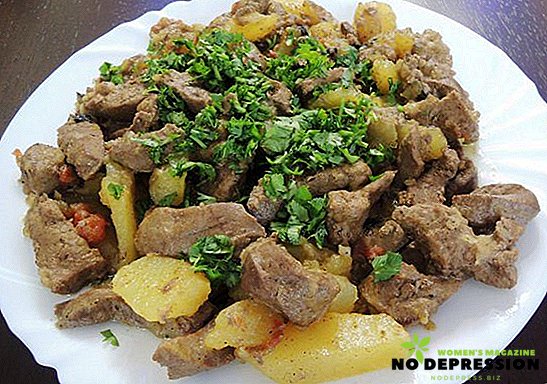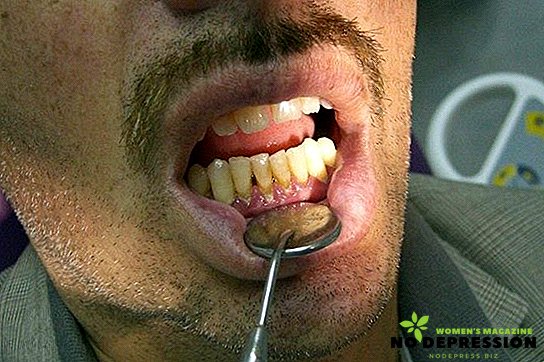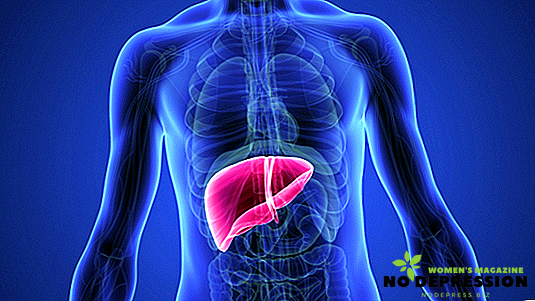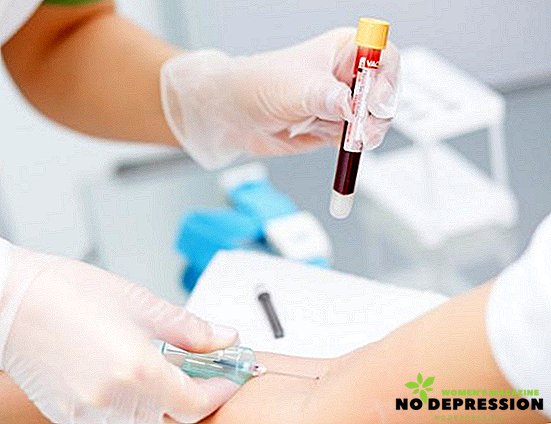Indications for taking Asparkam are mainly associated with potassium and magnesium deficiency, electrolyte imbalance, and heart rhythm disorders.
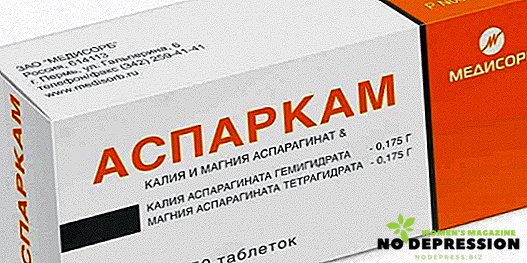
pharmachologic effect
Asparkam, as mentioned above, is used with a lack of potassium and magnesium. He also has a regulating metabolic processes action. Due to this, the electrolyte balance is normalized, the heart rhythm is corrected, and the intercellular phosphate synthesis is stimulated.
Aspark is sold in the form of tablets and solution for injection (in ampoules or bottles). The active ingredients of the drug are potassium asparginate and magnesium asparginate. Potassium ions improve the conduction of impulses along the nerve fibers, and are involved in the maintenance of normal cardiac activity.
Potassium is a moderate diuretic; it dilates the arteries in small doses and narrows in large ones.
Magnesium ions are indispensable in three hundred enzyme reactions, metabolic processes, regulation of the permeability of cell membranes, are contained in the structure of DNA, take part in the synthesis of RNA, in the regulation of neuromuscular excitability.
The drug is easily absorbed, and its content in the blood reaches a maximum in 1-2 hours. From the blood, potassium and magnesium ions get inside the cardiomyocytes and are involved in cellular metabolism. Aspartate becomes transport K+ and Mg2+ into the intracellular space.

Indications for admission Asparkam
- potassium deficiency (hypokalemia);
- magnesium deficiency (hypomagnesemia);
- coronary heart disease;
- shock conditions;
- heart rhythm disorders and heart failure;
- in the treatment of ventricular premature beats, paroxysmal atrial fibrillation;
- prevention of cardiac glycoside intoxication.
A study was conducted, the results of which showed that the treatment of Asparkam possible full normalization of heart rhythm.
During stress, intense mental and physical exertion, with heavy perspiration, magnesium and potassium are removed from the body. To fill their shortage of food may not be enough.

Instructions for use
Tablets are taken orally, 1-2 after meals 3 times a day. With intravenous drip, it is important to observe a slow speed, up to 25 drops per minute. For intravenous injection, the solution is diluted with sodium chloride and injected into a vein at a rate of 5 ml per hour.
If the rate of intravenous administration is too high, symptoms of potassium and magnesium are likely to appear.
The duration of the course of treatment is regulated by the doctor, but usually it is designed for 3-4 weeks.
Contraindications and side effects
Due to the fact that the drug is excreted by the kidneys, renal insufficiency, adrenal insufficiency, dehydration will be contraindications. Other contraindications are hyperkalemia (excess potassium), hypermagnesium (excess magnesium), myasthenia (destruction of the neuromuscular junction), cardiogenic shock, hemolysis, acute blood acidosis, atrioventricular blockade (impaired conduction of impulses from the atrium to the ventricles).
Use during pregnancy and lactation is permitted with caution, under the supervision of a physician. Particular attention should be paid to receive in the first trimester of pregnancy and apply when absolutely necessary.
Possible side effects associated with hyperkalemia, hypermagnesia, stress on the kidneys.
Side effects:
- from the gastrointestinal tract: nausea, vomiting, diarrhea, burning in the pancreas;
- respiratory system: respiratory depression;
- on the part of the cardiovascular system: a decrease in the frequency of the pulse, a decrease in pressure, an atrioventricular block;
- other possible side effects: cramps, muscle weakness and fatigue, feeling of dry mouth, depression of the nervous system, dizziness, redness of the skin, paresis (incomplete paralysis).
The occurrence of side effects and overdose is much more likely when taking Asparkam in the form of injections. Do not enter Asparkam intravenously at a fast rate because of the serious consequences for the patient’s life due to an overdose.
If side effects occur, you should consult with your doctor and adjust the treatment.
Drug interaction
Increases the risk of hyperkalemia joint reception Asparkam with the following drugs:
- beta blockers;
- Heparin;
- angiotensin converting enzyme inhibitors;
- Cyclosporine;
- nonsteroidal anti-inflammatory drugs;
- potassium-sparing diuretics.

Use together with corticosteroids allows you to compensate for the deficiency of potassium, which cause the latter. When administered jointly with dextrose and insulin, it normalizes the heart rhythm during infarction, overdose with cardiac glycosides (Digoxin, Digitoxin, Amiodarone), ectopic arrhythmias (they are based on the appearance of additional foci of arousal in the heart muscle).
Asparks together with Diakarb prescribed with increased intracranial pressure, edema, epilepsy, glaucoma, gout.
Anesthetics enhance the nervous system inhibitory effect of magnesium. Any calcium supplements reduce the effects of magnesium supplements.
Taking Asparkam reduces the effect of the following drugs:
- Tetracycline;
- Streptomycin;
- Neomycin;
- Polymyxin V.
Agents with astringent and enveloping effect reduce adsorption (absorption) of Asparkam in the intestine.
With prolonged use, you must monitor the content of electrolytes in the blood.

Price and analogues
Asparkam is usually inexpensive. Prices start at about 5 p. and depend on the form of release. Asparkam solution is more expensive than pills.
Analogs of Asparkam:
- Avexima;
- Panangin;
- Asparkam-L;
- Aspangin.
Among all these drugs, Aspark remains the most affordable and cheap.
Reviews
Side effects from Asparkam tablets are rare. Due to the low price of the drug is available to the general population.
Recently decided to do health, sports. For a month nothing bothered me, and suddenly severe chest pains appeared. I was scared, came to the therapist. After passing the tests, Aspark was prescribed a pill three times a day, and everything went
Elena, 31, Moscow
During the session I began to notice that my leg muscles were twitching when I went to bed. I did not attach any importance to this, but one night I woke up from a sharp pain in the calf muscles. I had to go to the therapist, and it turned out that it was potassium deficiency. Aspark sawed, I feel much better.
Natalia, 20 years old, Nizhny Novgorod
I found out about Asparkam by chance, when Panangin was not in the pharmacy. Much cheaper, but the effect is the same. I have a nervous job and drink a course a couple of times a year. Now I advise friends. There have never been any side effects.
Mikhail, 36 years old, Kursk
Conclusion
Aspark is sold in pharmacies without a prescription. Reception of Asparkam, as well as any other medicinal product, must be coordinated with your doctor. Independent administration of Asparkam itself is unacceptable: in some cases, contraindications are possible, a number of drugs increase the side effects of Asparkam components, and hyperkalemia or hypermagniemia may occur. Astringents reduce the effectiveness of Asparkam due to a decrease in its absorption in the intestine. However, in most cases, side effects are rare.
Due to the low price, availability in pharmacies and the optimal composition, both patients and doctors respond positively to Asparkam.
A little more additional information about Aspark can be obtained from the following video.


